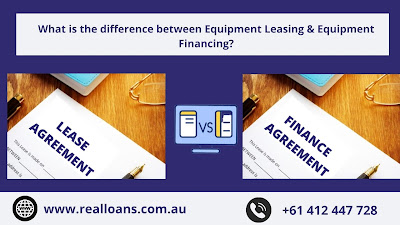Understanding Loan Rate for Commercial Property: Key Factors and Insights
- Get link
- X
- Other Apps
When considering investing in commercial property, one of the most crucial aspects to understand is the loan rate. The loan rate for commercial property can significantly impact the profitability of your investment, and getting the right deal could save you substantial amounts of money over the long term. This guide will walk you through the important factors that influence commercial property loan rates, how to secure favorable terms, and what you should be aware of when comparing lenders.
What is a Loan Rate for Commercial Property?
A loan rate for commercial property refers to the interest rate charged by a lender for providing financing to purchase or refinance a commercial property. This rate varies depending on several factors, including the type of property, the borrower’s financial profile, and market conditions. Commercial loans typically have higher interest rates than residential loans because they involve greater risk for lenders.
Unlike residential loans, commercial property loans are often tailored to the specifics of the borrower’s business needs, which means rates can be more variable. Lenders assess the borrower’s creditworthiness, the potential for the property to generate income, and other factors to determine the appropriate loan rate.
Factors That Affect the Loan Rate for Commercial Property
-
Loan Type and Term The type of commercial property loan you apply for can play a large role in determining the interest rate. For instance, SBA 504 loans, which are backed by the Small Business Administration, may offer more favorable rates compared to traditional bank loans or private lender loans. Additionally, the term of the loan (typically 5 to 30 years) can influence the interest rate. Short-term loans might have slightly higher rates than longer-term loans, but they offer faster repayment schedules.
-
Property Location and Type The location and type of commercial property you’re purchasing can also affect the interest rate. For example, properties in high-demand urban areas are considered less risky and might attract a lower rate, whereas properties in remote or economically volatile regions may come with higher rates. Similarly, lenders tend to offer better rates for properties that are more likely to generate stable cash flow, such as multi-family residential buildings or office spaces, than for more speculative properties like vacant land.
-
Borrower’s Financial Profile A key consideration for lenders when setting the loan rate is the borrower’s financial profile, which includes your credit score, income, business experience, and the amount of capital you can put down as a deposit. The stronger your financial position, the lower the risk for the lender, and therefore the more likely you are to receive a favorable interest rate.
-
Loan-to-Value Ratio (LTV) The loan-to-value ratio (LTV) is a key metric that compares the amount of the loan to the appraised value of the property. A lower LTV (meaning a larger down payment) is often viewed more favorably by lenders and can result in a better loan rate. Generally, an LTV ratio of 65% to 80% is considered ideal, but some lenders may accept higher ratios at a premium rate.
-
Interest Rate Type: Fixed vs. Variable The interest rate type you choose can also impact your overall loan rate. A fixed-rate loan provides stability, as the interest rate stays the same throughout the loan’s life. This is appealing if you want predictable monthly payments. On the other hand, variable-rate loans start with a lower interest rate but can change over time, often based on market conditions. While a variable rate might seem attractive initially, it can rise in the future, potentially making it more expensive.
How to Secure the Best Loan Rate for Commercial Property
-
Shop Around Lenders offer different commercial loan rates, and it’s essential to compare terms from several institutions. Don’t just settle for the first offer you get. Whether you approach traditional banks, online lenders, or credit unions, take the time to compare their interest rates, fees, and loan terms.
-
Improve Your Credit Score As mentioned earlier, the borrower’s credit score is a major factor influencing the loan rate. To secure a better rate, work on improving your credit score by paying down debts, correcting any inaccuracies on your credit report, and ensuring you meet all your financial obligations. A higher credit score generally leads to a lower risk for lenders, translating into lower interest rates.
-
Negotiate Terms Don’t be afraid to negotiate with lenders for better terms. If you have a strong financial position and can demonstrate the potential profitability of your property, lenders might be open to offering you more favorable rates. Always read the fine print and consider seeking advice from a financial advisor or mortgage broker if you need expert assistance in structuring the loan.
-
Consider Loan Pre-Approval If you're serious about purchasing commercial property, getting pre-approved for a loan can give you a clearer idea of what loan rate you might expect. It also shows sellers that you are a serious buyer, which could help you secure the property at a better price.
Conclusion
The loan rate for commercial property is a vital factor in determining the success of your investment. By understanding the key elements that influence the rate and taking steps to improve your financial profile, you can position yourself to secure the most competitive rate available. Remember, different lenders offer varying terms, so always shop around and consider negotiating to ensure you’re getting the best deal. With the right loan rate, your commercial property investment can be a sound and profitable endeavor.
- Get link
- X
- Other Apps




Comments
Post a Comment